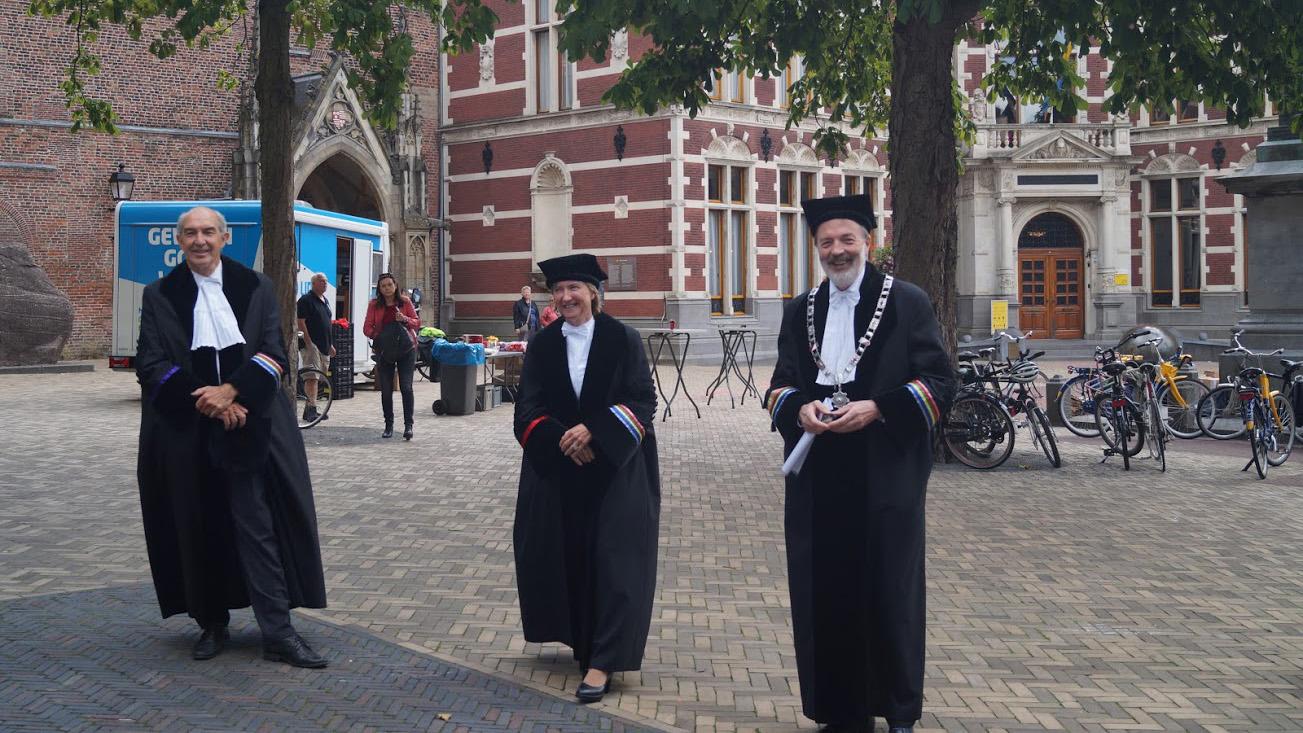Executive Board will have a student as advisor

Students who think the Executive Board could use some advice about students' interests can apply for the position of student assessor in the coming months.
By appointing such an advisor, the Executive Board is looking to make sure that the students’ perspective is better represented in the university’s policies, said rector Henk Kummeling in a committee meeting of the University Council earlier this week.
Independent position
The student assessor can participate in all the meetings of the Executive Board. He or she will also have access to the same information the board has access to. The idea is that the student assessor will advise the board on issues regarding educational and student policies.
In order to do that successfully, the student will not have any administrative responsibility. But they will not be an additional co-determination representative either. “It’s an independent position. The student assessor is not an aide to the Executive Board, but he's not a pawn for the council either.”
A different perspective
Until recently, the members of the Executive Board didn't seem very interested (link in Dutch only) in appointing a student to such a role. The opinion shifted at the end of 2020, when the board reacted to an ‘application’ (link in Dutch only) sent by eleven members of council party UUinActie.
In an interview with DUB last December, rector Kummeling voiced his support for appointing a student assessor. “Students come up with topics or perspectives that administrators sometimes don’t think of. Their input can improve the decision-making process and therefore increase the support for a decision”.
Elections
UU is the third university in the Netherlands to appoint a student assessor to its executive board, following the University of Amsterdam and the University of Groningen. However, the position is just a trial. The student members of the University Council seem satisfied with the proposal – the only question up for discussion is how to recruit the assessor.
UUinActie is the only party that would like the new student assessor to be elected, which would require the entire UU community to get involved. However, that's necessary if the Executive board wants its decisions to have "broad support", stated council member Freek Geerligs during this week’s meeting.
Disadvantages
Rector Henk Kummeling is not in favour of holding elections for positions that don’t entail actual powers, according to his interview with DUB in December. In the committee, he outlined the downsides of having a candidate who, after being elected, would have to try and keep his campaign promises on specific points, while taking part in a board that may have more nuanced thoughts on certain subjects.
Kummeling says it’s much more important that a student assessor has the right experience and capabilities to perform well. “It would be peculiar to consult the entire university for this”, he concluded.
Application committee
Vuur party member Marijn Baars says the other council partners agree with the rector’s reasoning. “The downside of elections is that it politicises the position. That political approach is, and will remain, the domain of co-determination”.
However, they do want the selection board to have a different composition than the one proposed by the Executive Board: one student member, the rector, the director of student affairs, and the secretary of the board. Instead, the council members would prefer to see a broader committee that would include representatives of student associations and the student union Vidius.
The powers and support of a student assessor should also be described in more detail, said Baats, adding that the position should be for at least 32 hours a week.
The rector said he expected to reach an agreement in the next University Council meeting scheduled for the 26th of April. Before then, the council members should receive a new, more specific proposal so that the recruitment process can start after that.
*Update 28 april 2021*
In the University Council meeting held on Monday, the 26th of April, the University Council and the Executive Board have reached an agreement on the composition of the nomination committee. This will consist of a student from the University Council, a representative of student union Vidius, a faculty assessor, UU's general director of UU or the director of student affairs, and a representative from the Executive Board. After a pilot phase of two years, the university will examine whether the new initiative is satisfactory.